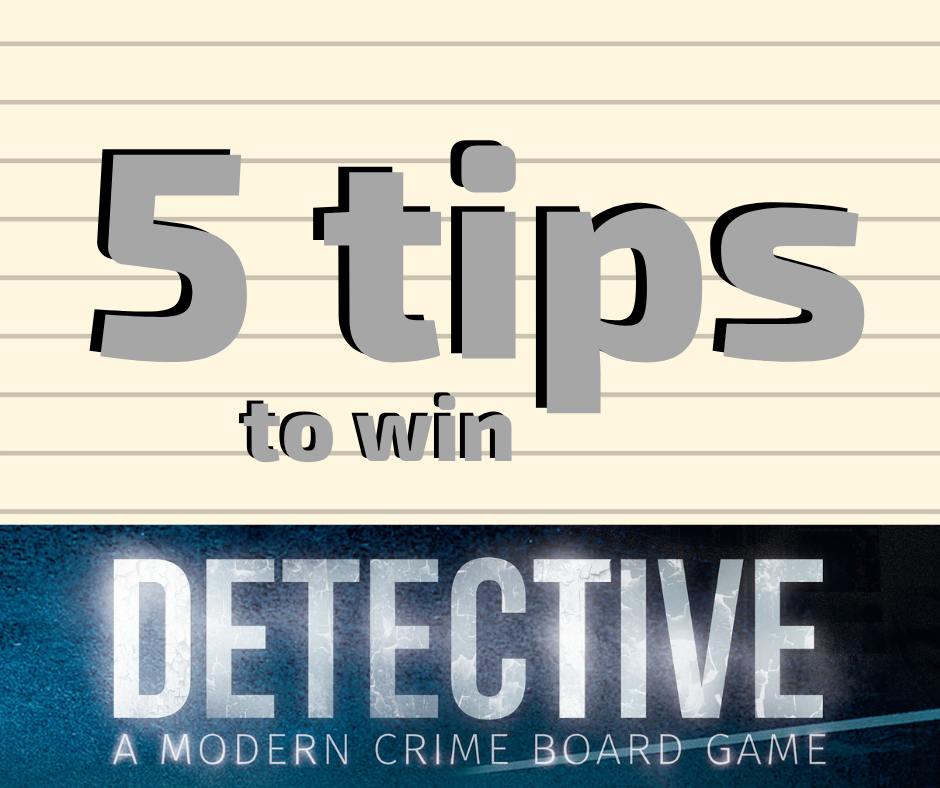
Detective is a game of hidden clues and deception. As you are playing, you are constantly confronted with a flow of information, sometimes lies, sometimes red herrings, sometimes valuable and important pieces of the plot. Without proper training, you, Detectives, may fail.
But worry not. You just joined our special training program.
Rank Further Leads
Many cards in the game give you some additional leads and options to consider. A very good strategy is to rank them. After you note down your new available options, give each of them a score, it might be a school grade, or BGG rating, or whatever you prefer. Please discuss with the group how they feel about each lead and its importance. Let everyone at the table rate the lead. It gives you a great perspective on what should be your next step and it encourages all players to voice their opinions.
Ask – what we learned?
After reading a card, ask everyone at the table what details and particular fragments got their attention. What was important on this card? What sounded was off, and perhaps it might be something. What was weird in the words of the witness? What we should note down.
We always say in the interviews about Detective – if you read a card and sum it up: “Nothing interesting,” that means you missed something. Every card in the game hides information pieces. Ask everyone at the table to say aloud what they think was important here.
Adjust the rating of leads
The first lesson was to rate Further Leads. Lesson number three is – adjust the rating. After you read a card and discussed what you learned, now it is time to go through every further lead and ask yourself a question – does the new information we gained change our opinion about existing further leads? Does anything pop up now as much more important or tempting? Does any lead become worthless in the light of new information?
Read every available further lead (good for reminding you of your options) and adjust the ratings if you feel they change their weight!
Draw a timeline
Not every Case in Detectives has an essential for solving the case timeline, but nevertheless, it is always good to draw a long horizontal line on a piece of paper and mark all dates and hours of events described in the case. It will help you understand the flow of events described in the case, and in some of the stories, it is also crucial to know the dates and hours to understand what happened and therefore solve the case.
Always, always draw a line and make it your Case calendar!
Why
It’s true for every product in the genre. It’s true for crime novels, for crime movies, and for crime games – the word why.
Write down a big WHY on the piece of paper and keep it in the middle of the table. Without knowing and understanding why the crime was committed, you will never be sure who did it. The motivation of the bad guys, motivation of murder is always the key to solving the crime.
So the last lesson is elementary – if you have a list of suspects, if you have a couple of names that are on your list of potential murderers, next to each name, write WHY, and this one simple question will help you pick the right guy to put behind bars!
 Polski
Polski English
English Deutsch
Deutsch




